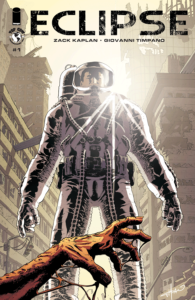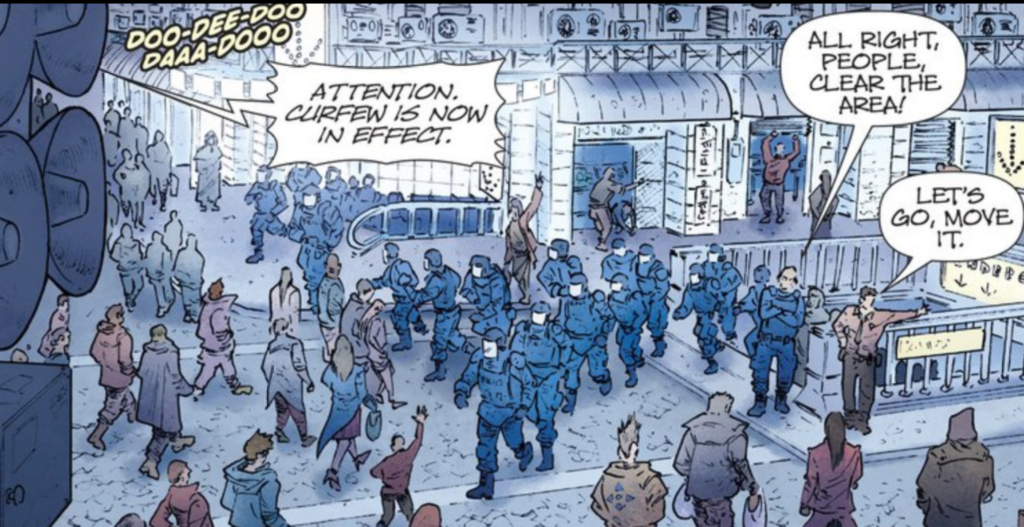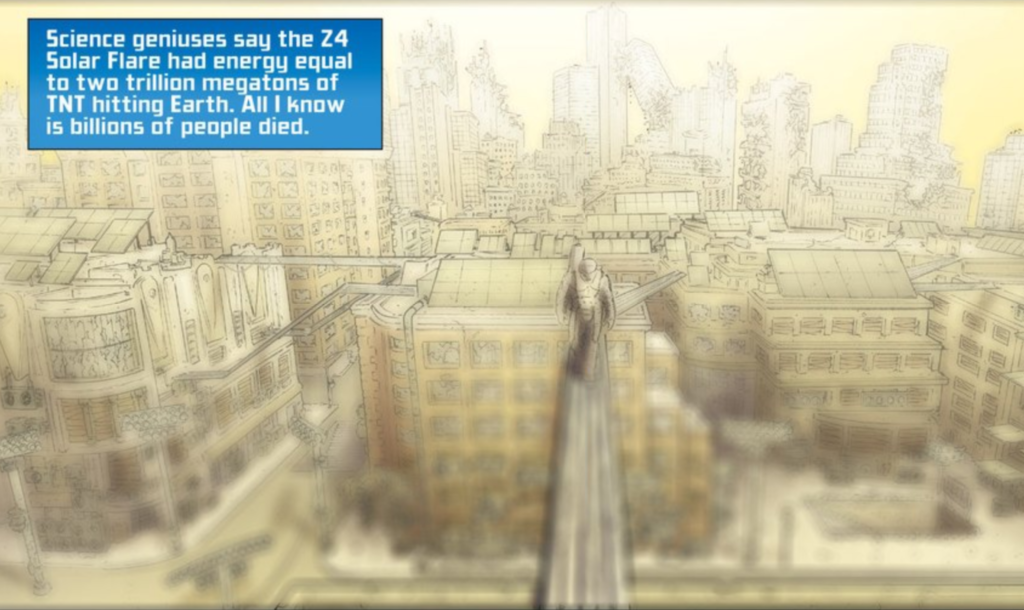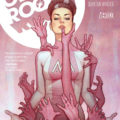Comic Book Taste Test: Eclipse by Zack Kaplan
 Sometimes, I pick up a series because it was optioned as a TV show. Other times, I pick up a series because it has a setting and theme I really like. Then there are the series I pick up out of sheer curiosity, like Zack Kaplan’s Eclipse. I am, admittedly, pretty sick and tired of post-apocalyptic/disaster stories, so I approached with cautious (very cautious) optimism.
Sometimes, I pick up a series because it was optioned as a TV show. Other times, I pick up a series because it has a setting and theme I really like. Then there are the series I pick up out of sheer curiosity, like Zack Kaplan’s Eclipse. I am, admittedly, pretty sick and tired of post-apocalyptic/disaster stories, so I approached with cautious (very cautious) optimism.
Eclipse takes place 10 years after a solar event that makes the sun’s rays deadly to people. It’s essentially as though we are suddenly living on Venus, with the sun not only being much hotter, but the radiation from the sun’s rays literally melts people. People have retreated underground — the comic is set in NYC, given its labyrinthine subway system — with select people roaming the above ground in special suits. These people are called Icemen. All isn’t exactly well in Eclipse’s grim view of the future, but thing get even worse as a person appears to be dragging people above ground to murder them via the sun.
This series flew largely below my radar last year, and I’m really puzzled as to why. I read a few things about it, here and there, but after diving into the first four issues, I feel as though Eclipse is poised to be the next sleeper sci-fi comic hit. It’s not as sexy as Saga, or nostalgia-fueled as Paper Girls, but it has some really nice touches going on that help elevate it above post-apocalyptic schlock. 
For one, our hero is an ex-fireman, which makes a lot of sense. The Icemen have to wear very heavy, bulky suits that are equipped with oxygen and coolant. They have to maneuver through urban environments and occasionally save people or fix heavy equipment. Firemen would, naturally, make great candidates for this, as it would be an extension of their former job. Little logical progressions like that make me really happy in sci-fi stories.
The first arc, itself, sets a pretty decent hook. The characters all have clear backgrounds — our main hero, naturally, lost his wife and child during the cataclysmic event — and established relationships and hierarchies. That is to say, in a mere four issues, the world of Eclipse is very clearly laid out for us. The central mystery, too, appears to be laid out in nice fashion, and while it’s a little formulaic, I like everything else going on within so much as to not mind. 
It’s also worth noting that the art really elevates the series, too. I was a fan of Giovanni Timpano’s work on G.I. Joe, and his drawing is very solid throughout the first four issues of Eclipse. But the real treat here is the color work. The underground and night scenes are very muted in cool blues, which really fuels this sense of a dark, depressing atmosphere. The day scenes, on the other hand, are almost too bright to look at on a digital screen; high yellows and whites make for this fantastically blinding experience. In many ways it reminds me of Danny Boyle’s Sunshine; it’s very effective.
Eclipse is only four issues into its run, but if the first four-issue arc is any indicator, it’s a good sci-fi, murder mystery, conspiracy offering. It just happens to be set in the post-apocalyptic future.





